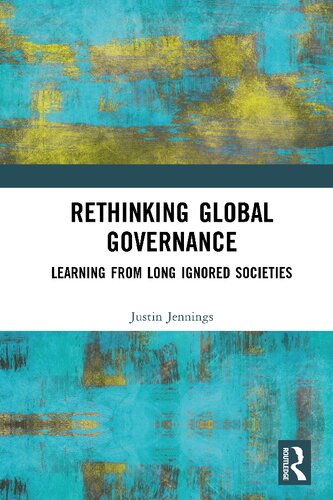

Most ebook files are in PDF format, so you can easily read them using various software such as Foxit Reader or directly on the Google Chrome browser.
Some ebook files are released by publishers in other formats such as .awz, .mobi, .epub, .fb2, etc. You may need to install specific software to read these formats on mobile/PC, such as Calibre.
Please read the tutorial at this link: https://ebookbell.com/faq
We offer FREE conversion to the popular formats you request; however, this may take some time. Therefore, right after payment, please email us, and we will try to provide the service as quickly as possible.
For some exceptional file formats or broken links (if any), please refrain from opening any disputes. Instead, email us first, and we will try to assist within a maximum of 6 hours.
EbookBell Team

4.8
54 reviewsThis book argues that long-ignored, non-western political systems from the distant and more recent past can provide critical insights into improving global governance.
These societies show how successful collection action can occur by dividing sovereignty, consensus building, power from below, and other mechanisms. For a better tomorrow, we need to free ourselves of the colonial constraints on our political imagination. A pandemic, war in Europe, and another year of climatic anomalies are among the many indications of the limits of global governance today. To meet these challenges, we must look far beyond the status quo to the thousands of successful mechanisms for collective action that have been cast aside a priori because they do not fit into Western traditions of how people should be organized. Coming from long past or still enduring societies often dismissed as “savages” and “primitives” until well into the twentieth century, the political systems in this book were often seen as too acephalous, compartmentalized, heterarchical, or anarchic to be of use. Yet as globalization makes international relations more chaotic, long-ignored governance alternatives may be better suited to today’s changing realities. Understanding how the Zulu, Trypillian, Alur, and other collectives worked might be humanity’s best hope for survival.
This book will be of interest both to those seeking to apply archaeological and ethnographic data to issues of broad contemporary concern and to academics, politicians, policy makers, students, and the general public seeking possible alternatives to conventional thinking in global governance.